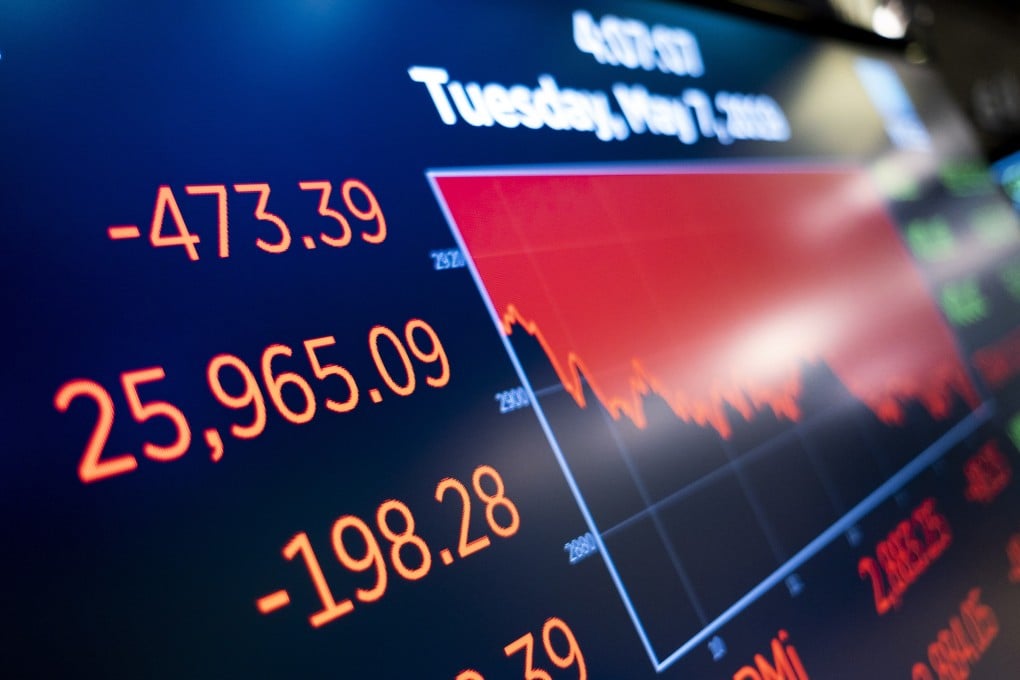US tariff threats rattle US stock markets, with major indexes all enduring sell-offs
- Investors take two days of threats by Trump administration officials to heart, fearing Washington and Beijing will not meet Friday deadline for a deal
- S&P and Dow each fall by more than 1.5 per cent, while Nasdaq slides nearly 2 per cent

Threats and deadlines in the US-China trade war caught up with US stock market investors on Tuesday, as they sold off shares on escalating concerns a deal will not materialise between Washington and Beijing by a Friday deadline.
US President Donald Trump’s threat to further raise tariffs on US$200 billion worth of Chinese goods imported into the United States to 25 per cent – from the 10 per cent rate they are now subject to – sent the benchmark Standard & Poor’s 500 index and the Dow Jones Industrial Average both down more than 1.5 per cent.
The markets have heard two days of sabre-rattling from the Trump administration: On Sunday, Trump unexpectedly posted on Twitter that he was prepared to raise those tariffs. On Monday, after the markets closed, US Trade Representative Robert Lighthizer and US Treasury Secretary Steven Mnuchin charged that China was reneging on its trade commitments. These statements came just days before Chinese Vice-Premier Liu He was to lead a delegation to Washington for an 11th round of talks.
“The cause of all of this is the deadline on tariffs. That is clearly what the market is concerned about … I am concerned there will not be an agreement reached in a matter of days and we will then be living with these tariffs, at least through late June when the G20 meets in Osaka, Japan,” said David Bianco, Americas chief investment officer of DWS, the asset management arm of Deutsche Bank in New York.
After a spike lower, shares managed to gain back some ground. The S&P 500 fell 48.42 points, or 1.65 per cent, to 2,884.05, while the Dow lost 473.39, or 1.79 per cent, to 25,965.09. The technology-laden Nasdaq index dropped 159,53, or 1.96 per cent, to 7,963.76. Semiconductors and technology stocks in general are considered among the most vulnerable to a protracted trade war.
